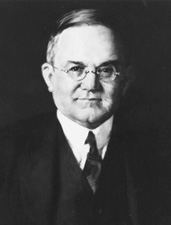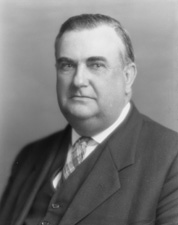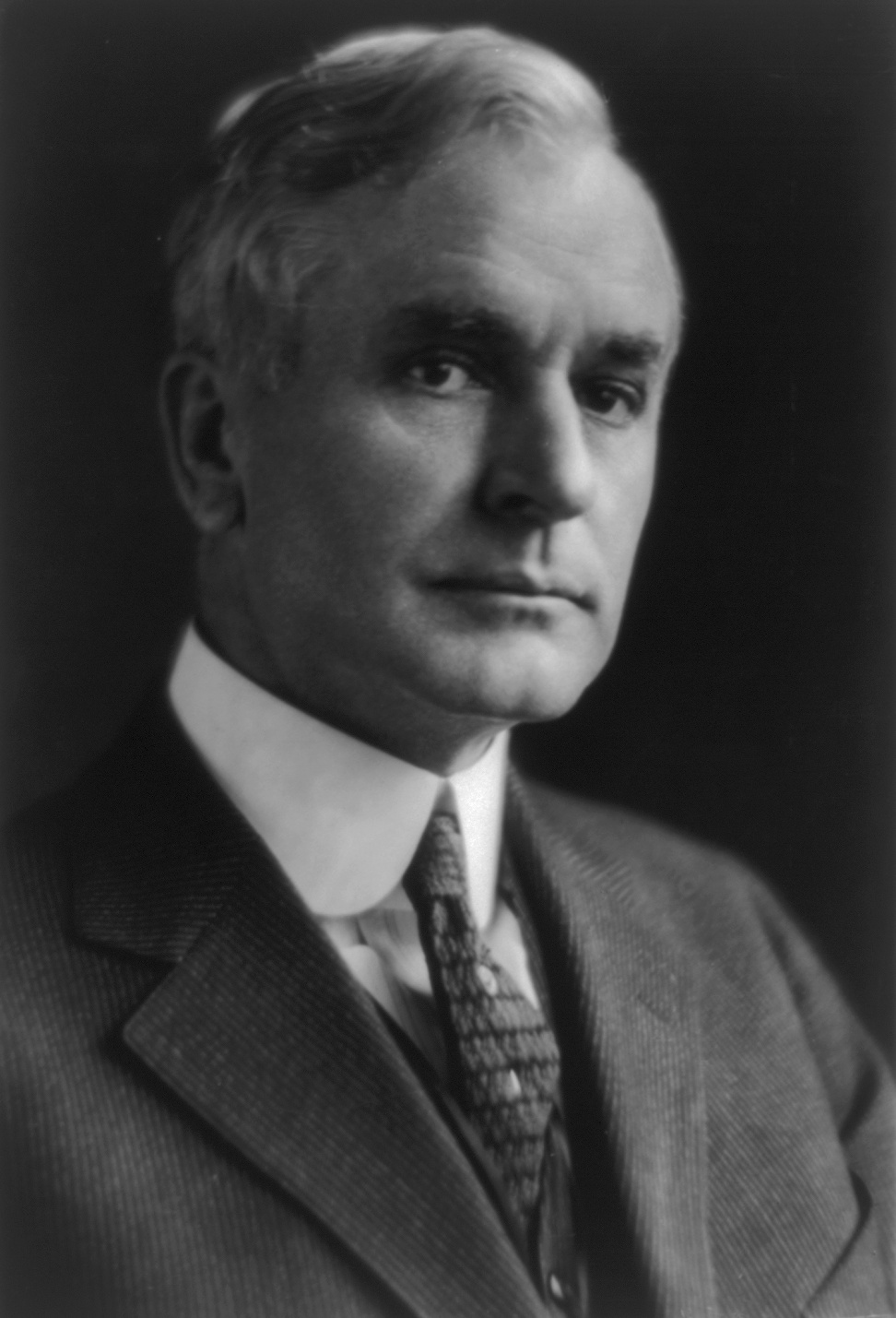The 1930 United States Senate elections occurred in the middle of
Republican
Republican can refer to:
Political ideology
* An advocate of a republic, a type of government that is not a monarchy or dictatorship, and is usually associated with the rule of law.
** Republicanism, the ideology in support of republics or agains ...
President
Herbert Hoover
Herbert Clark Hoover (August 10, 1874 – October 20, 1964) was an American politician who served as the 31st president of the United States from 1929 to 1933 and a member of the Republican Party, holding office during the onset of the Gr ...
's term. With the
Great Depression
The Great Depression (19291939) was an economic shock that impacted most countries across the world. It was a period of economic depression that became evident after a major fall in stock prices in the United States. The economic contagio ...
beginning to take hold, Republican incumbents became unpopular,
and
Democrats picked up a net of eight seats, erasing the Republican gains from the
previous election cycle. Republicans retained control of the
U.S. Senate
The United States Senate is the upper chamber of the United States Congress, with the House of Representatives being the lower chamber. Together they compose the national bicameral legislature of the United States.
The composition and powe ...
since Vice President
Charles Curtis
Charles Curtis (January 25, 1860 – February 8, 1936) was an American attorney and Republican politician from Kansas who served as the 31st vice president of the United States from 1929 to 1933 under Herbert Hoover. He had served as the Sena ...
cast the tie-breaking vote. This was the first of four consecutive Senate elections during the Depression in which Democrats made enormous gains, achieving a cumulative pick-up of 34 seats.
In
Louisiana
Louisiana , group=pronunciation (French: ''La Louisiane'') is a state in the Deep South and South Central regions of the United States. It is the 20th-smallest by area and the 25th most populous of the 50 U.S. states. Louisiana is borde ...
, Democratic senator-elect
Huey Long
Huey Pierce Long Jr. (August 30, 1893September 10, 1935), nicknamed "the Kingfish", was an American politician who served as the 40th governor of Louisiana from 1928 to 1932 and as a United States senator from 1932 until his assassination ...
chose not to take his Senate seat until January 25, 1932 so he could remain as
Governor of Louisiana
A governor is an administrative leader and head of a polity or political region, ranking under the head of state and in some cases, such as governors-general, as the head of state's official representative. Depending on the type of political ...
. The Republicans therefore retained the plurality of seats at the beginning of the next Congress. With Vice President
Charles Curtis
Charles Curtis (January 25, 1860 – February 8, 1936) was an American attorney and Republican politician from Kansas who served as the 31st vice president of the United States from 1929 to 1933 under Herbert Hoover. He had served as the Sena ...
(R) able to cast
tie-breaking votes, the Republicans would have majority control with their 48 of the 96 seats. That slim control was further weakened in the last months of the next Congress with several mid-term seat changes.
In Minnesota,
Henrik Shipstead
Henrik Shipstead (January 8, 1881June 26, 1960) was an American politician. He served in the United States Senate from 1923 to 1947, from the state of Minnesota. He served first as a member of the Minnesota Farmer-Labor Party from 1923 to 1941 and ...
was not up for election in 1930. He was a former Republican who became a
Farmer–Laborite in
1922
Events
January
* January 7 – Dáil Éireann (Irish Republic), Dáil Éireann, the parliament of the Irish Republic, ratifies the Anglo-Irish Treaty by 64–57 votes.
* January 10 – Arthur Griffith is elected President of Dáil Éirean ...
. Although the Farmer–Laborites would later merge with the
Minnesota Democratic Party
The Minnesota Democratic Party was a political party in Minnesota that existed from the formation of Minnesota Territory in 1849 until 1944, when the party merged with the Minnesota Farmer-Labor Party to form the modern Minnesota Democratic-Far ...
to form the
Democratic–Farmer–Labor Party in 1944, Shipstead and his contemporaries were not aligned with either major party. He would later rejoin the party in
1940
A calendar from 1940 according to the Gregorian calendar, factoring in the dates of Easter and related holidays, cannot be used again until the year 5280.
Events
Below, the events of World War II have the "WWII" prefix.
January
*January ...
.
Gains and losses
The Republicans only gained one seat by defeating incumbent
Daniel F. Steck
Daniel Frederic Steck (December 16, 1881December 31, 1950), was the only Iowa Democrat in the United States Senate between the American Civil War and the Great Depression. He was sworn in as senator only after an extraordinary election challenge, ...
(D-IA). The Democrats took open seats in
Colorado
Colorado (, other variants) is a state in the Mountain West subregion of the Western United States. It encompasses most of the Southern Rocky Mountains, as well as the northeastern portion of the Colorado Plateau and the western edge of t ...
,
Illinois
Illinois ( ) is a U.S. state, state in the Midwestern United States, Midwestern United States. Its largest metropolitan areas include the Chicago metropolitan area, and the Metro East section, of Greater St. Louis. Other smaller metropolita ...
,
, and
West Virginia
West Virginia is a state in the Appalachian, Mid-Atlantic and Southeastern regions of the United States.The Census Bureau and the Association of American Geographers classify West Virginia as part of the Southern United States while the Bur ...
, and defeated five incumbents:
*
Henry J. Allen (R-KS)
*
John M. Robsion (R-KY)
*
Roscoe C. McCulloch
Roscoe Conkling McCulloch (November 27, 1880March 17, 1958) was a Republican politician from Ohio who served in the United States House of Representatives and U.S. Senate.
Early life and career
Born in Millersburg, Ohio, McCulloch attended the ...
(R-OH)
*
William B. Pine
William Bliss Pine (December 30, 1877August 25, 1942) was an American businessman who served as United States Senator from Oklahoma. Born in Illinois, he moved to Kansas and finally Oklahoma, where he became a prominent businessman and oil produce ...
(R-OK)
*
William H. McMaster (R-SD)
Change in composition
Before the elections
After the elections
Race summary
Special elections during the 71st Congress
In these special elections, the winner were seated during 1930; ordered by election date (then by state).
Elections leading to the 72nd Congress
In these general elections, the winners were elected for the term beginning March 4, 1931; ordered by state.
All of the elections involved the Class 2 seats.
Alabama
Arkansas
Colorado
Delaware

Interim appointee
Daniel O. Hastings was elected both to finish the current term and to the next term on the same November 4 ballot.
[
]
Delaware (Regular)
Delaware (Special)
Georgia
Idaho
Illinois
Iowa
Kansas
Kansas (Regular)

Kansas (Special)

Kentucky
Kentucky (Regular)

Kentucky (Special)

Louisiana
Maine
Massachusetts
Michigan
Minnesota
Mississippi
Montana
Nebraska
New Hampshire
New Jersey

New Jersey (Regular)
New Jersey (Special)
New Mexico
North Carolina
Ohio (Special)
Oklahoma
Oregon
Pennsylvania (Special)
Rhode Island
Incumbent Republican Senator Jesse H. Metcalf
Jesse Houghton Metcalf (November 16, 1860October 9, 1942) was an American politician, he served as a United States senator from Rhode Island.
Early life
Born in Providence, Metcalf was educated in private schools there, studied textile manu ...
successfully sought reelection to a 2nd term in office. , this is the last time a Republican has won the Class 2 Senate seat in Rhode Island, and it would be the last time a Republican would win any Senate seat in the state at all until John Chafee
John Lester Hubbard Chafee ( ; October 22, 1922 – October 24, 1999) was an American politician and officer in the United States Marine Corps. A member of the Republican Party (United States), he served as the 66th Governor of Rhode Island, as ...
in 1976
Events January
* January 3 – The International Covenant on Economic, Social and Cultural Rights enters into force.
* January 5 – The Pol Pot regime proclaims a new constitution for Democratic Kampuchea.
* January 11 – The 1976 Phila ...
South Carolina
South Dakota
Tennessee
One-term Democrat Lawrence D. Tyson died August 24, 1929 and Democrat William Emerson Brock
William Emerson Brock (March 14, 1872August 5, 1950) was a Democratic United States Senator from Tennessee from 1929 to 1931.
Life and career
Brock was born in Davie County, North Carolina, the son of Mary Ann (Howell) and Richard Emerson Broc ...
was appointed September 2, 1929 to continue the term, pending a special election.
Tennessee (Special)
 Interim Democrat
Interim Democrat William Emerson Brock
William Emerson Brock (March 14, 1872August 5, 1950) was a Democratic United States Senator from Tennessee from 1929 to 1931.
Life and career
Brock was born in Davie County, North Carolina, the son of Mary Ann (Howell) and Richard Emerson Broc ...
easily won election to finish the term.
Tennessee (Regular)

William Emerson Brock
William Emerson Brock (March 14, 1872August 5, 1950) was a Democratic United States Senator from Tennessee from 1929 to 1931.
Life and career
Brock was born in Davie County, North Carolina, the son of Mary Ann (Howell) and Richard Emerson Broc ...
was not a candidate to the next term, instead choosing to return to his Chattanooga candy manufacturing business. Instead, former Democratic congressman Cordell Hull
Cordell Hull (October 2, 1871July 23, 1955) was an American politician from Tennessee and the longest-serving U.S. Secretary of State, holding the position for 11 years (1933–1944) in the administration of President Franklin Delano Roosevelt ...
was swept into the seat.
Hull was appointed United States Secretary of State
The United States secretary of state is a member of the executive branch of the federal government of the United States and the head of the U.S. Department of State. The office holder is one of the highest ranking members of the president's Ca ...
and served there for 11 years, and in 1945, he was awarded the Nobel Peace Prize
The Nobel Peace Prize is one of the five Nobel Prizes established by the will of Swedish industrialist, inventor and armaments (military weapons and equipment) manufacturer Alfred Nobel, along with the prizes in Nobel Prize in Chemistry, Chemi ...
for "co-initiating the United Nations
The United Nations (UN) is an intergovernmental organization whose stated purposes are to maintain international peace and international security, security, develop friendly relations among nations, achieve international cooperation, and be ...
."
Texas
Virginia
West Virginia
Wyoming
 Six-term Republican Francis E. Warren had died November 24, 1929 and Republican Patrick J. Sullivan was appointed to continue the term, pending a special election in which he was not a candidate.
Six-term Republican Francis E. Warren had died November 24, 1929 and Republican Patrick J. Sullivan was appointed to continue the term, pending a special election in which he was not a candidate.
Wyoming (Special)
Wyoming (Regular)
See also
* 1930 United States elections
** 1930 United States House of Representatives elections
The 1930 United States House of Representatives elections was an election for the United States House of Representatives in 1930 which occurred in the middle of President Herbert Hoover's term.
During the election cycle, the nation was entering ...
* 71st United States Congress
The 71st United States Congress was a meeting of the legislature of the United States federal government, consisting of the United States Senate and the United States House of Representatives. It met in Washington, D.C. from March 4, 1929, to Ma ...
* 72nd United States Congress
The 72nd United States Congress was a meeting of the legislative branch of the United States federal government, consisting of the United States Senate and the United States House of Representatives. It met in Washington, D.C. from March 4, 1931 ...
Notes
References
{{1930 United States elections
 Interim appointee Daniel O. Hastings was elected both to finish the current term and to the next term on the same November 4 ballot.
Interim appointee Daniel O. Hastings was elected both to finish the current term and to the next term on the same November 4 ballot.





 Interim Democrat
Interim Democrat 
 Six-term Republican Francis E. Warren had died November 24, 1929 and Republican Patrick J. Sullivan was appointed to continue the term, pending a special election in which he was not a candidate.
Six-term Republican Francis E. Warren had died November 24, 1929 and Republican Patrick J. Sullivan was appointed to continue the term, pending a special election in which he was not a candidate.